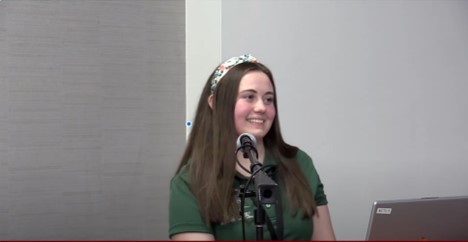When I got my amateur radio license at the end of fifth grade, I was a very shy, quiet young lady who wasn’t likely to stand up and speak or present in front of a group of people (willingly, anyway).
As I became more involved with the hobby, I started to notice this changing. Now I enjoy taking advantage of public speaking opportunities where I can share my experiences with ham radio. I’m usually one of the first in a room to take charge when need be. While I’m sure there have been countless influences contributing to this change, my involvement in amateur radio is by far the most profound of these.
In efforts to get more young people involved and pique their interest in the hobby, numerous opportunities for young hams to work on their leadership skills have emerged. There are youth forums at various conferences and conventions, leadership positions within organizations like Youth On The Air (YOTA), Young Amateurs Communications Ham Team (YACHT), and many others. From being a net control operator for the first time to leading a session, joining a planning committee for YOTA to giving a presentation in the youth forum at Dayton Hamvention® or HamCation, the leadership opportunities that exist for young hams cover many levels of intensity and commitment. Starting with some of the opportunities that involve lower stakes and less of a commitment is an ideal way to develop your leadership skills as a young person.

Having taken advantage of many of these opportunities myself, I can confidently say that for some young hams, putting yourself out there for the first time can be nerve wracking and thoroughly uncomfortable, but the end result is always worth it. Before my first presentation in the youth forum I was terribly nervous, but when it was over I walked away looking forward to the next time that I would get the opportunity to present. It gave me a much-improved sense of confidence and a desire to share my experiences so that others could get as much out of them as I did.
In addition to these leadership opportunities made possible through amateur radio, less direct opportunities emerge as well. Most high school and university students are required to complete a minimum number of volunteer hours to be inducted into certain school clubs or organizations, or even to graduate. All too often, my peers simply find random groups or organizations with which they have no personal connection to fulfill the volunteer requirement. Amateur radio provides a community where young people can volunteer in capacities where they can directly see the effects of their efforts while doing something they love.
For example, I’m very involved with the Long Island CW Club and have taught kids intermediate and advanced CW classes for four years. I absolutely love getting to share CW with other young hams, and it’s incredibly rewarding to see those that I’ve mentored develop a love for my favorite part of the hobby. With instances like this in mind, it’s easy to see why volunteering in the amateur radio community is so enjoyable for young people—they get to do something they love and then watch others enjoy it as well.
Amateur radio inspires leadership among young operators by giving them the mentors and Elmers to help develop their leadership skills, along with providing platforms that allow them to be able to share their experiences and influence others—essay contests, chats with experienced hams, presentations at hamfests, and other opportunities.
Throughout my few years in the hobby, amateur radio has helped me realize that “leadership” isn’t just about being in charge of a group of people. Rather, it’s doing your best at everything you do and always being open and willing to help people out with things they might be interested in pursuing. Most importantly, amateur radio helps young people realize and understand that their time spent being a leader is time well spent.
The post How Amateur Radio Fosters a Culture of Leadership in Young People appeared first on OnAllBands.
